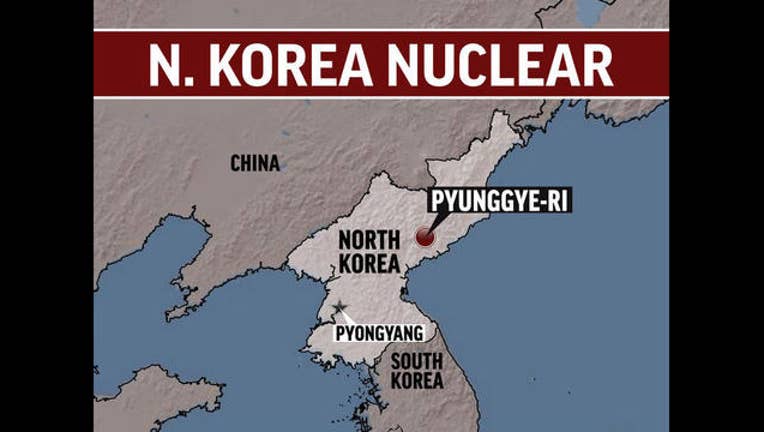Pres. Obama discusses North Korea nuclear threat with Asian leaders

WASHINGTON (KTVU/AP) — The United Nations Security Council is pledging action Wednesday against North Korea after a two-hour emergency meeting, convened to discuss North Korea's claims that it successfully tested a hydrogen bomb this week.
UN sanctions could include a worldwide ban on loading or unloading North Korean ships, a ban on banking transactions, or restrictions on business interactions. The question is whether new sanctions can succeed where others have failed.
The young 32-year-old North Korean President Kim Jong Un sent a message to the world that North Korea seeks to join the group of nations with nuclear capability. Experts say currently the United States, Britain, France, Russia, Pakistan, India, Israel, and China have nuclear capability.
President Barack Obama called leaders of South Korea and Japan Wednesday evening to assure them of U.S. support.
The White House said President Obama, South Korean President Park Geun-Hye and Japanese Prime Minister Shinzo Abe "agreed to work together to forge a united and strong international response to North Korea's latest reckless behavior."
Pyongyang's announcement of a successful hydrogen bomb test would mark a major and unanticipated advance for its still-limited nuclear arsenal.
North Korean state television showed Kim Jong Un reportedly authorizing the underground nuclear test with a message for the New Year that stated in part, "Make the world look up to our strong nuclear country and labor party by opening the year with exciting noise of the first hydrogen bomb."
United States officials are skeptical.
"The initial analysis that's been conducted of the events that were reported overnight is not consistent with North Korean claims of a successful hydrogen bomb test," said White House Press Secretary Josh Earnest.
"We're obviously going to continue to look at this by monitoring the situation, assessing the available data and evidence," Earnest said.
Experts say the 5.1 magnitude seismic shock in North Korea might not be strong enough to indicate a hydrogen bomb, but there is concern that North Korea is moving to develop a miniature hydrogen device that could be mounted on long-range missiles, which the country has been developing and testing.
"This test once again violates numerous Security Council resolutions despite a united call by the international community," said United Nations Secretary-General Ban Ki-Moon, condemning North Korea's actions.
A hydrogen bomb is more powerful, but also more difficult to manufacture than the atomic fission weapons North Korea has tested three times in the past decade.
Former Pentagon official and President of the San Francisco Commonwealth Club Gloria Duffy says nuclear experts will be looking for evidence and it could take weeks to determine what type of weapon was used.
"We do that through some more gathering of intelligence information which we can do testing air samples from the area to see whether they have the characteristics of a hydrogen bomb," Duffy said.
Political expert Thomas Henriksen, a Senior Fellow with the Hoover Institution at Stanford University says China plays a critical role in any solution.
"North Korea could not exist without aid from China. They get it in terms of fuel for their plants. They get it in terms of food," Henriksen said, "So China is absolutely key to any sort of resolution to the North Korean problem."

